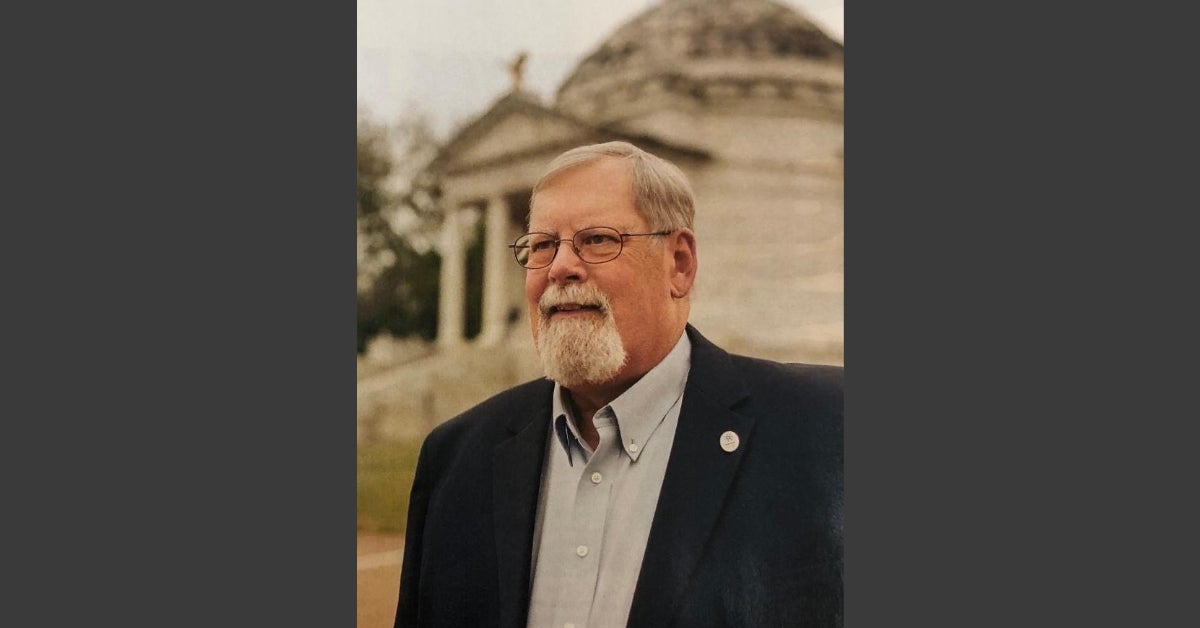IN HIS OWN WORDS: Bill Justice featured in International Rotary Magazine
Published 3:46 pm Wednesday, May 10, 2023

- Bill Justice, former superintendent of the Vicksburg National Military Park, stands alongside one of the memorials at the historic site. (Photo by Imani Khayyam)
This article is from the February 2023 Issue of the International Rotary Magazine as told to Geoffrey Johnson. The original article is titled “The Meaning of History: a passion for the past informs the present.”
I grew up around Antietam, Gettysburg and Harpers Ferry. All of those national parks were within a one- or two-hour drive, and that was part of what attracted me to the Civil War. It was all around me.
My parents took us camping a lot, and on one trip we stopped at Cape Hatteras in North Carolina. During a program on tide pools, a ranger pointed out that this thing was more than a pool of water left behind by a receding tide, that there was life of all kinds hidden in that pool. That inspired me to want to be the guy who understood things beyond what was seen and be able to share that with people.
One of Abraham Lincoln’s first memories was of planting pumpkins between the cornrows at Knob Creek farm, his boyhood home in Kentucky. His parents were members of the antislavery Baptist church nearby, and as you realize that Lincoln’s experiences at this place provided a foundation for how he came to look at slavery, you understand that you’re standing in a place where the world changed.
When people look at Civil War history, they tend to focus on the punctuation and not the sentence. For example, the punctuation for Antietam is the battle, but the campaign that preceded it and the battle’s lasting impacts — the sentence — are of greater importance.
I was superintendent of Vicksburg National Military Park for five years. I was interested in the Civil War in the West from early on and took an immediate liking to Ulysses S. Grant and his creativity. He was a bulldog; he just did not give up, and the broader story of his campaign to capture Vicksburg was a significant story to tell.
One of the big things about being a park ranger is dealing with meanings. Meanings are hugely important; they’re why these parks exist, to begin with.
They provide opportunities to learn more about history and about ourselves. What you hope for when people visit our historical parks is that they will go beyond validating their own views and be open to investigating the diversity of meanings they may not have been aware of. That’s where change takes place, and that’s where people can become more sensitive to the importance of preserving these historic spaces.




